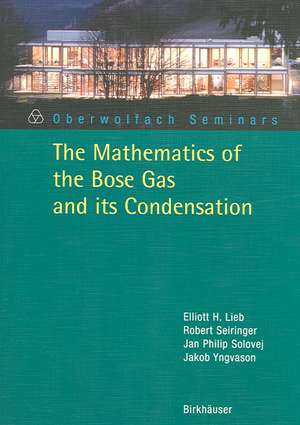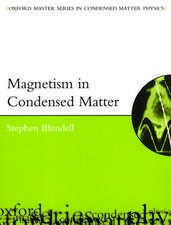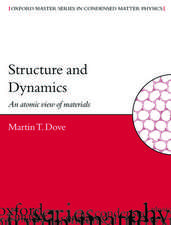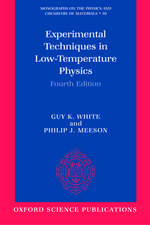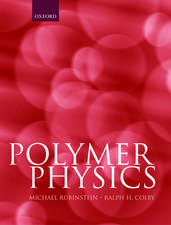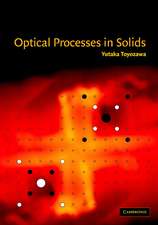The Mathematics of the Bose Gas and its Condensation: Oberwolfach Seminars, cartea 34
Autor Elliott H. Lieb, Robert Seiringer, Jan Philip Solovej, Jakob Yngvasonen Limba Engleză Paperback – 16 iun 2005
Din seria Oberwolfach Seminars
-
 Preț: 350.72 lei
Preț: 350.72 lei -
 Preț: 352.63 lei
Preț: 352.63 lei -
 Preț: 241.73 lei
Preț: 241.73 lei -
 Preț: 245.87 lei
Preț: 245.87 lei - 13%
 Preț: 356.04 lei
Preț: 356.04 lei -
 Preț: 361.64 lei
Preț: 361.64 lei -
 Preț: 379.30 lei
Preț: 379.30 lei -
 Preț: 343.72 lei
Preț: 343.72 lei -
 Preț: 485.46 lei
Preț: 485.46 lei -
 Preț: 352.25 lei
Preț: 352.25 lei -
 Preț: 486.54 lei
Preț: 486.54 lei -
 Preț: 352.41 lei
Preț: 352.41 lei -
 Preț: 274.54 lei
Preț: 274.54 lei -
 Preț: 385.62 lei
Preț: 385.62 lei -
 Preț: 380.07 lei
Preț: 380.07 lei -
 Preț: 315.18 lei
Preț: 315.18 lei - 15%
 Preț: 579.34 lei
Preț: 579.34 lei -
 Preț: 344.47 lei
Preț: 344.47 lei -
 Preț: 355.05 lei
Preț: 355.05 lei -
 Preț: 379.86 lei
Preț: 379.86 lei -
 Preț: 346.59 lei
Preț: 346.59 lei -
 Preț: 352.54 lei
Preț: 352.54 lei -
 Preț: 410.55 lei
Preț: 410.55 lei -
 Preț: 349.27 lei
Preț: 349.27 lei -
 Preț: 356.60 lei
Preț: 356.60 lei -
 Preț: 381.59 lei
Preț: 381.59 lei -
 Preț: 499.99 lei
Preț: 499.99 lei -
 Preț: 396.78 lei
Preț: 396.78 lei -
 Preț: 347.15 lei
Preț: 347.15 lei -
 Preț: 425.91 lei
Preț: 425.91 lei -
 Preț: 347.25 lei
Preț: 347.25 lei -
 Preț: 358.13 lei
Preț: 358.13 lei - 5%
 Preț: 581.41 lei
Preț: 581.41 lei -
 Preț: 431.35 lei
Preț: 431.35 lei -
 Preț: 279.94 lei
Preț: 279.94 lei -
 Preț: 270.09 lei
Preț: 270.09 lei -
 Preț: 355.52 lei
Preț: 355.52 lei -
 Preț: 360.92 lei
Preț: 360.92 lei -
 Preț: 242.00 lei
Preț: 242.00 lei -
 Preț: 573.72 lei
Preț: 573.72 lei -
 Preț: 458.78 lei
Preț: 458.78 lei -
 Preț: 346.66 lei
Preț: 346.66 lei -
 Preț: 493.51 lei
Preț: 493.51 lei -
 Preț: 416.92 lei
Preț: 416.92 lei -
 Preț: 415.95 lei
Preț: 415.95 lei -
 Preț: 353.18 lei
Preț: 353.18 lei
Preț: 421.34 lei
Nou
Puncte Express: 632
Preț estimativ în valută:
80.63€ • 86.21$ • 67.22£
80.63€ • 86.21$ • 67.22£
Carte tipărită la comandă
Livrare economică 18 aprilie-02 mai
Preluare comenzi: 021 569.72.76
Specificații
ISBN-13: 9783764373368
ISBN-10: 3764373369
Pagini: 212
Ilustrații: VIII, 208 p.
Greutate: 0.42 kg
Ediția:2005
Editura: Birkhäuser Basel
Colecția Birkhäuser
Seria Oberwolfach Seminars
Locul publicării:Basel, Switzerland
ISBN-10: 3764373369
Pagini: 212
Ilustrații: VIII, 208 p.
Greutate: 0.42 kg
Ediția:2005
Editura: Birkhäuser Basel
Colecția Birkhäuser
Seria Oberwolfach Seminars
Locul publicării:Basel, Switzerland
Public țintă
ResearchCuprins
The Dilute Bose Gas in 3D.- The Dilute Bose Gas in 2D.- Generalized Poincaré Inequalities.- Bose-Einstein Condensation and Superfluidity for Homogeneous Gases.- Gross-Pitaevskii Equation for Trapped Bosons.- Bose-Einstein Condensation and Superfluidity for Dilute Trapped Gases.- One-Dimensional Behavior of Dilute Bose Gases in Traps.- Two-Dimensional Behavior in Disc-Shaped Traps.- The Charged Bose Gas, the One- and Two-Component Cases.- Bose-Einstein Quantum Phase Transition in an Optical Lattice Model.
Recenzii
"The presentation provides significant insight into a large part of the current issues of interest in the physics of Bose systems and especially into the "kitchen" of several relevant mathematical techniques. As such, it is highly recommended to both advanced researchers and students preparing to work in this field."
(Mathematical Reviews)
(Mathematical Reviews)
Textul de pe ultima copertă
This book contains a unique survey of the mathematically rigorous results about the quantum-mechanical many-body problem that have been obtained by the authors in the past seven years. It addresses a topic that is not only rich mathematically, using a large variety of techniques in mathematical analysis, but is also one with strong ties to current experiments on ultra-cold Bose gases and Bose-Einstein condensation. The book provides a pedagogical entry into an active area of ongoing research for both graduate students and researchers. It is an outgrowth of a course given by the authors for graduate students and post-doctoral researchers at the Oberwolfach Research Institute in 2004. The book also provides a coherent summary of the field and a reference for mathematicians and physicists active in research on quantum mechanics.
Caracteristici
The only available summary of its kind Written with attention to pedagogical detail No book that covers these topics on this mathematical level Includes supplementary material: sn.pub/extras
